A Comprehensive Guide to Relocating to Paris
November 11, 2025
Discover essential tips for relocating to Paris including neighborhoods, costs and expat life.
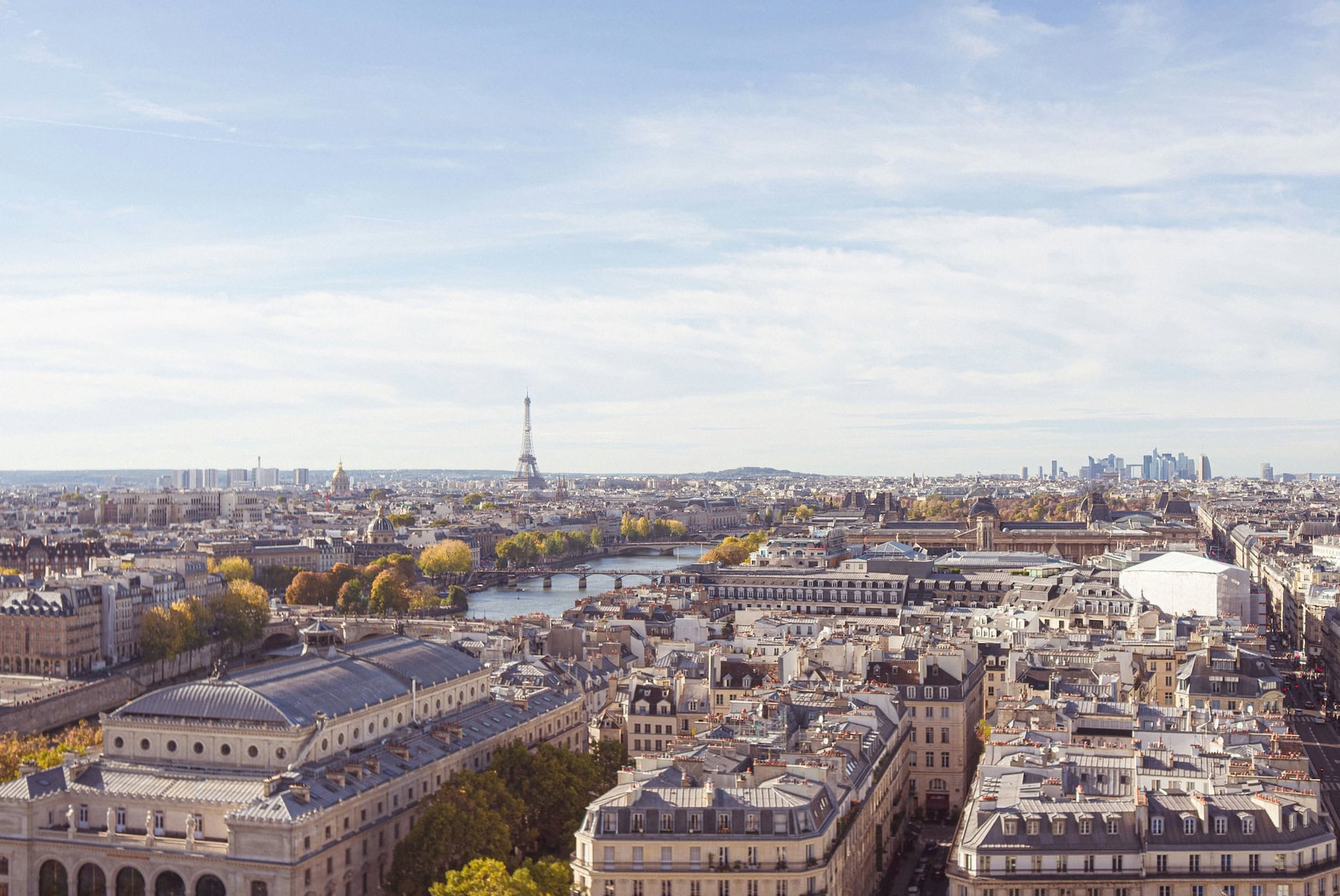
Relocating to Paris is a dream for many, but like all great things, it requires some planning and preparation. This guide covers everything you need to know to make a smooth transition to Paris, whether you’re moving for work or a new adventure.
Making the Move
Corporate relocation to Paris
Relocating to Paris for work involves navigating visa requirements, housing logistics and adjusting to a new professional culture. Many employers offer support systems that include relocation assistance, housing stipends and even language classes. But beyond corporate help, tapping into relocation networks and services can ease the stress of settling in. Look for agencies or community groups that specialize in helping expats find housing, navigate French bureaucracy and integrate into the local scene.
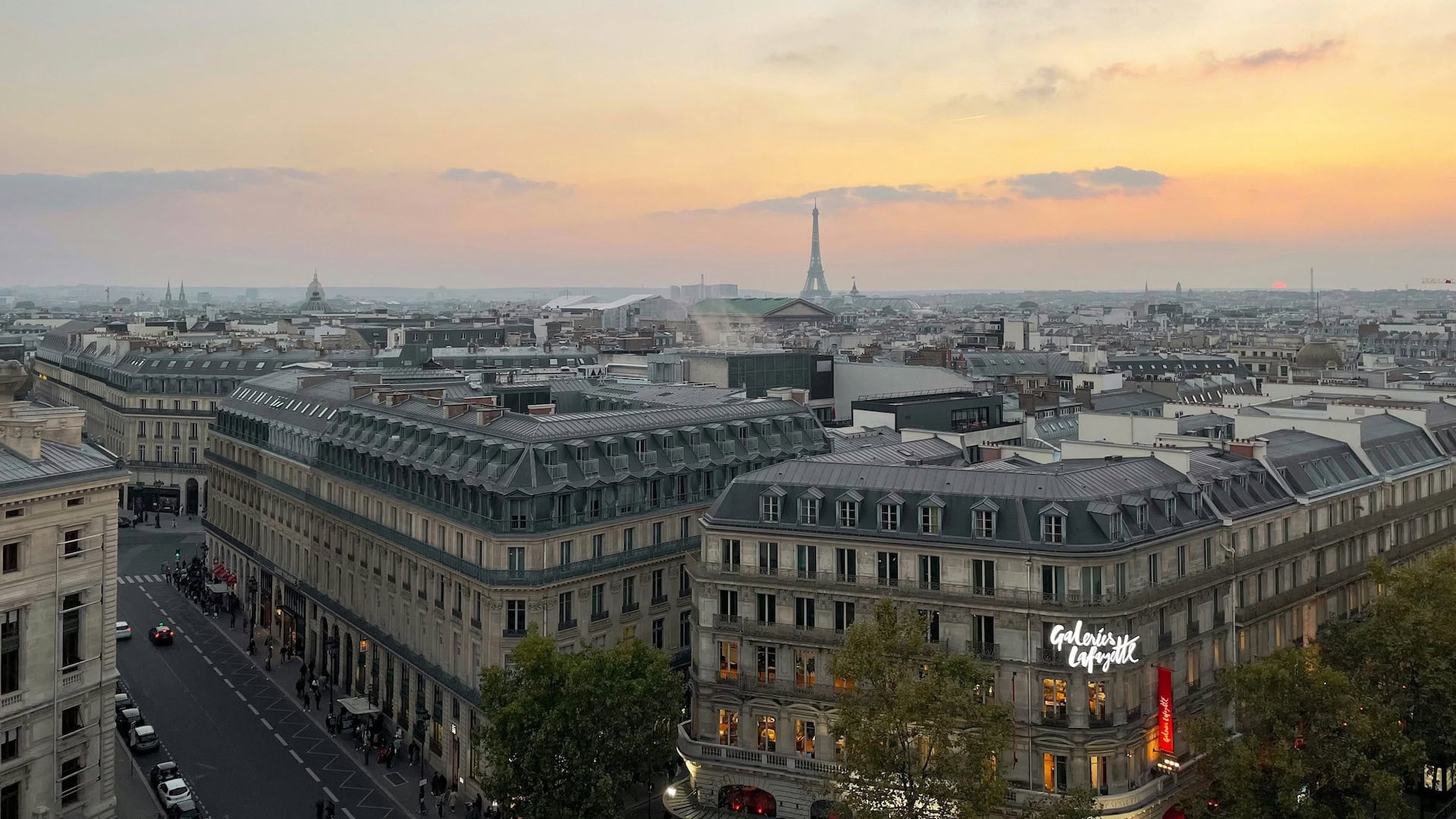
Once in Paris, consider joining business meetups, attending industry conferences or frequenting coworking spaces like Zoku Paris to expand your professional network. French business culture places high value on relationships, so networking over coffee or apéro can go a long way.
Applying for a visa
Before moving to Paris, it’s important to understand the different visa options available for non-EU citizens. Some of the most common include the long-stay visa (visa de long séjour) and the work visa. If you’re not planning to work while in France, a “visitor” visa allows you to stay long-term, as long as you can demonstrate financial self-sufficiency.
To apply for a visa, you’ll need to gather several documents, such as proof of financial stability, health insurance and a valid passport. Begin the application process at the nearest French consulate or embassy, and be prepared for a wait of up to two months for processing.
Validating your visa upon arrival
Once you arrive in France, you need to validate your visa with the French Immigration and Integration Office (OFII). This process may include attending a medical exam and completing an integration course. Failure to validate your visa could result in legal complications, so make this a priority upon arrival.
Bringing pets to Paris
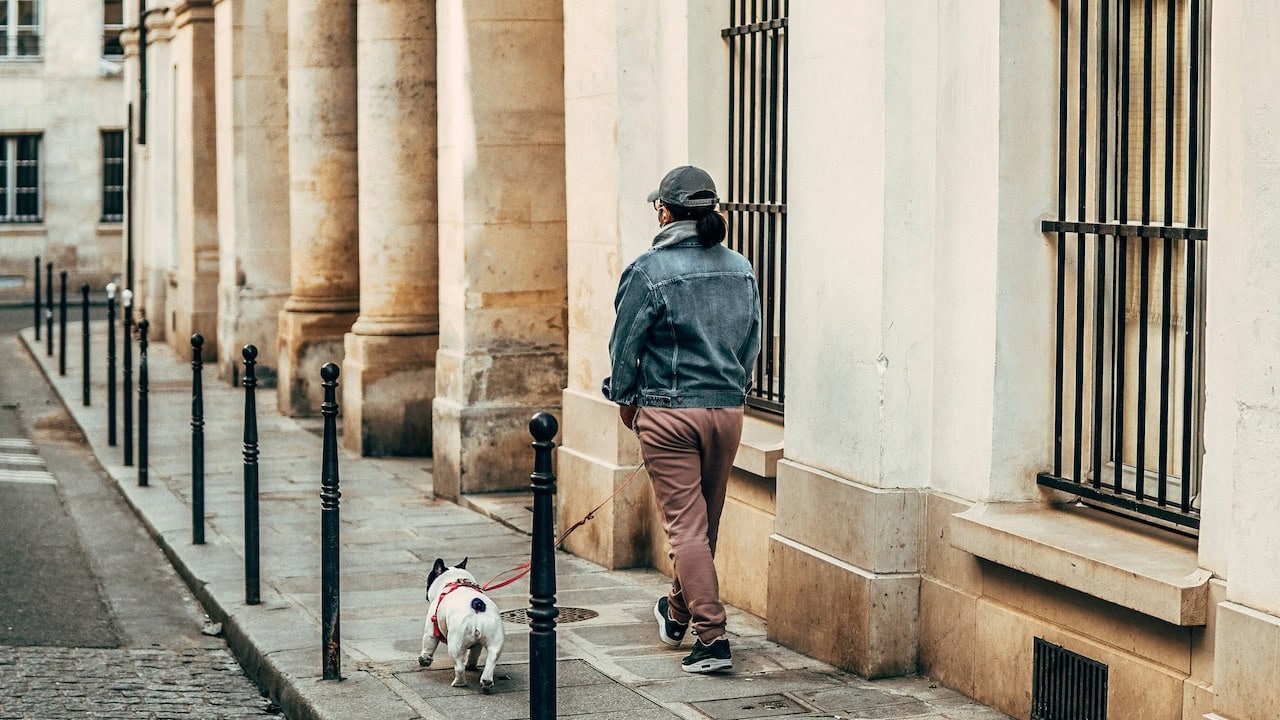
Bringing pets to Paris requires careful planning. Pets must be microchipped, vaccinated and have a pet passport to enter France. Additional regulations may apply depending on the country of origin, so it’s important to prepare well in advance.
Settling in
Understanding neighborhoods in Paris
Paris is a city of contrasts, with each arrondissement offering a distinct personality. For expats looking to put down roots, understanding the nuances of the different neighborhoods in Paris is key to a smooth transition.
The 7th arrondissement, home to the Eiffel Tower and several embassies, is known for its elegance and calm atmosphere. It’s a favorite among professionals seeking a prestigious address that’s both residential and well-connected. On the other hand, the 10th and 11th arrondissements pulse with a youthful, international energy. Here, you’ll find buzzing cafés, indie boutiques and coworking spaces tucked between classic Haussmanian architecture. These areas are ideal for those who crave community, culture and convenience.
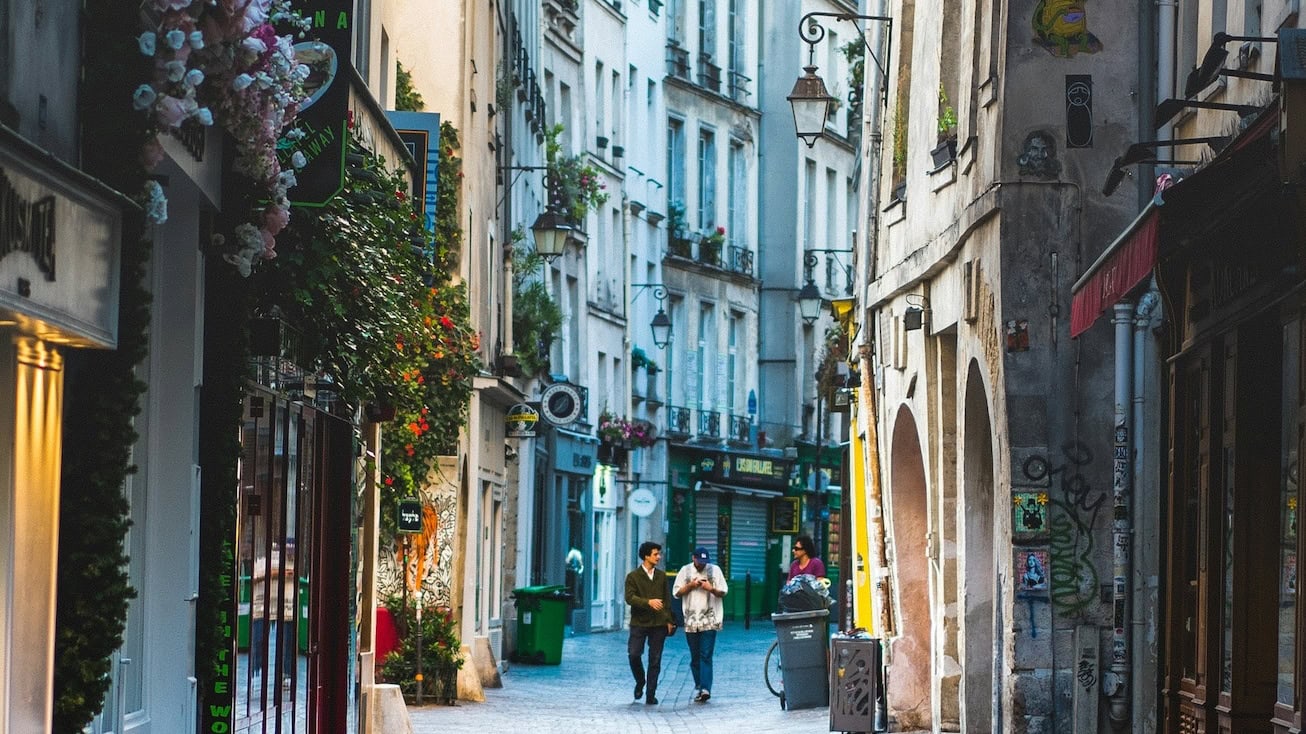
Le Marais, straddling the 3rd and 4th arrondissements, is another popular option, especially among creatives and LGBTQ+ expats. This historic district charms with its cobbled streets, art galleries and concept stores. Families often gravitate towards the leafy 16th arrondissement, drawn by its quieter streets, proximity to international schools and expansive green spaces like Bois de Boulogne.
When choosing where to live, it’s also worth considering districts beyond the usual suspects. Up-and-coming arrondissements including the 19th, with its vibrant Canal de l’Ourcq area, and the village-like 20th, brimming with artists and hidden bistros, offer a local and authentic Parisian experience, often at a friendlier price.
Ultimately, your decision should reflect your lifestyle: Do you want nightlife at your doorstep, or a peaceful retreat after work? Are you walking to meetings, or hopping on the Metro? Paris has a neighborhood for every mood, so take your time to explore before settling in.
Housing options in Paris
Finding the right accommodation is one of the biggest challenges when moving to Paris. Apartments are the most common type of housing in the city, with options ranging from furnished short-term rentals to long-term leases for unfurnished spaces. It’s often advisable to start with a short-term rental or relocation accommodation to get a feel for the different neighborhoods before committing to a longer lease.
Using agencies and private listings
If you’re new to Paris, using a real estate agency can be helpful to navigate the complex rental market. Agencies can assist with paperwork and ensure you meet all requirements. Private listings can be more affordable, but they often require in-person visits and a thorough understanding of the local market.
Finding a temporary stay
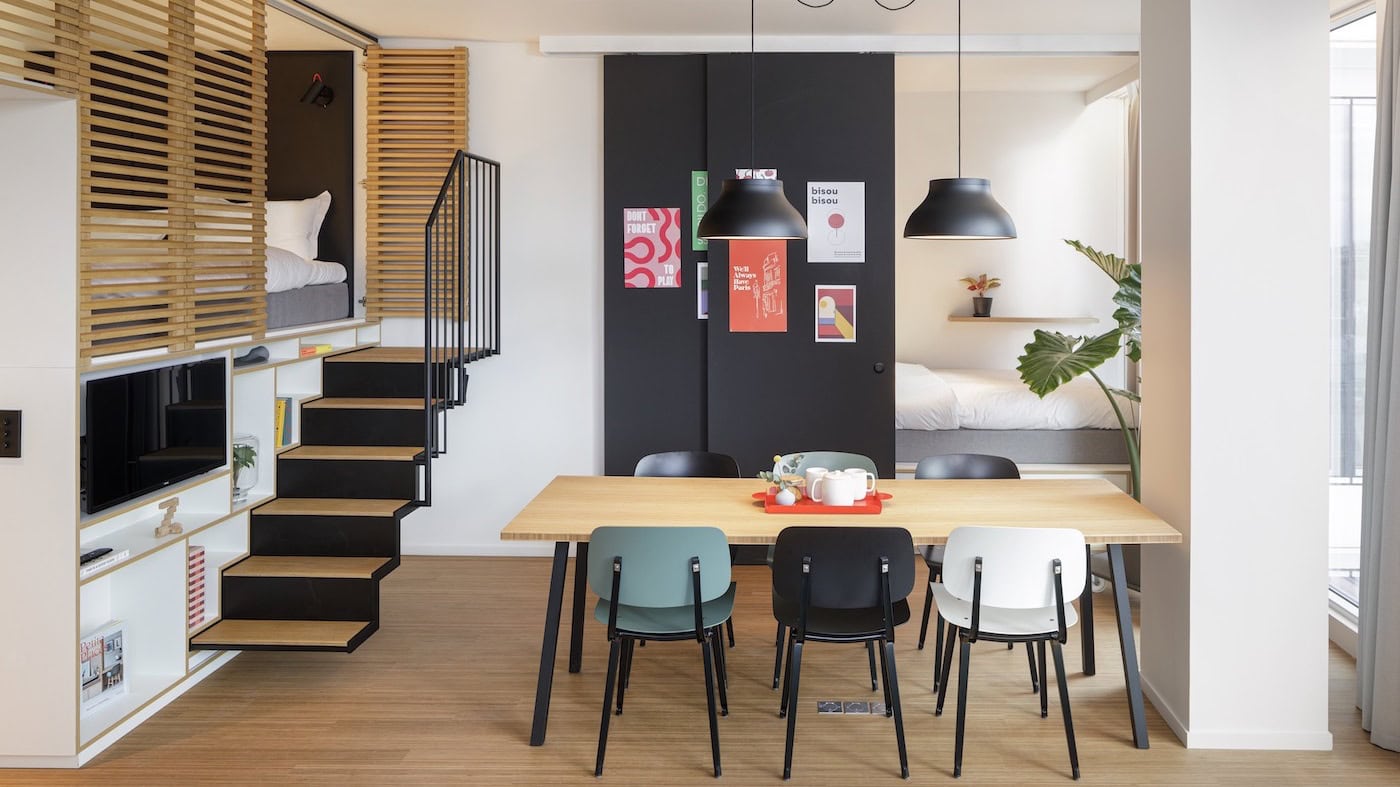
Aparthotels, serviced apartments and long-stay hotels are a great option for finding temporary relocation housing in Paris before finding a more permanent solution. Zoku’s flexible, short-term accommodations. Designed for expats and longer stays, Zoku’s hybrid home-office spaces provide a comfortable living environment with the added benefit of a community, so you can meet people as soon as you arrive. This makes it easier to settle in while you search for a more permanent residence.
Pet-friendly accommodation
Make sure where you stay is pet-friendly. At Zoku, we offer a “Paw-licy” so you can move to Paris with your furry friend by your side.
Practical tips for relocation
Banking and finances
Opening a local bank account is essential for managing your finances in Paris. You’ll need a valid passport, proof of address, and sometimes a visa or residence permit. Major banks like BNP Paribas, Société Générale and Crédit Agricole are popular choices for expats, or you can instantly set up a mobile bank account with neo-banks like Bunq or Revolut.
Setting up utilities and services
Once you’ve secured accommodation, setting up utilities such as electricity, gas and internet is the next step. Many providers require a French phone number and bank account for service setup.
Understanding the French healthcare system
France has a comprehensive public healthcare system, but there are gaps in coverage that expats should be aware of. It’s common for residents to have supplementary health insurance, known as a “mutuelle,” to cover additional medical costs. Expats are eligible for public healthcare after three months of residence, but having private insurance initially is advisable.
Daily life
Cost of living in Paris
Living in Paris comes with its fair share of expenses, and rent will likely be your largest monthly cost. Rent varies significantly depending on the arrondissement and apartment size. For example, a furnished one-bedroom in the 7th arrondissement could easily reach €2,000 per month, while similar accommodations in the 20th or 19th might be closer to €1,200-€1,500. Shared flats, or “colocations,” are popular among younger expats and can significantly reduce costs while offering an instant social network.
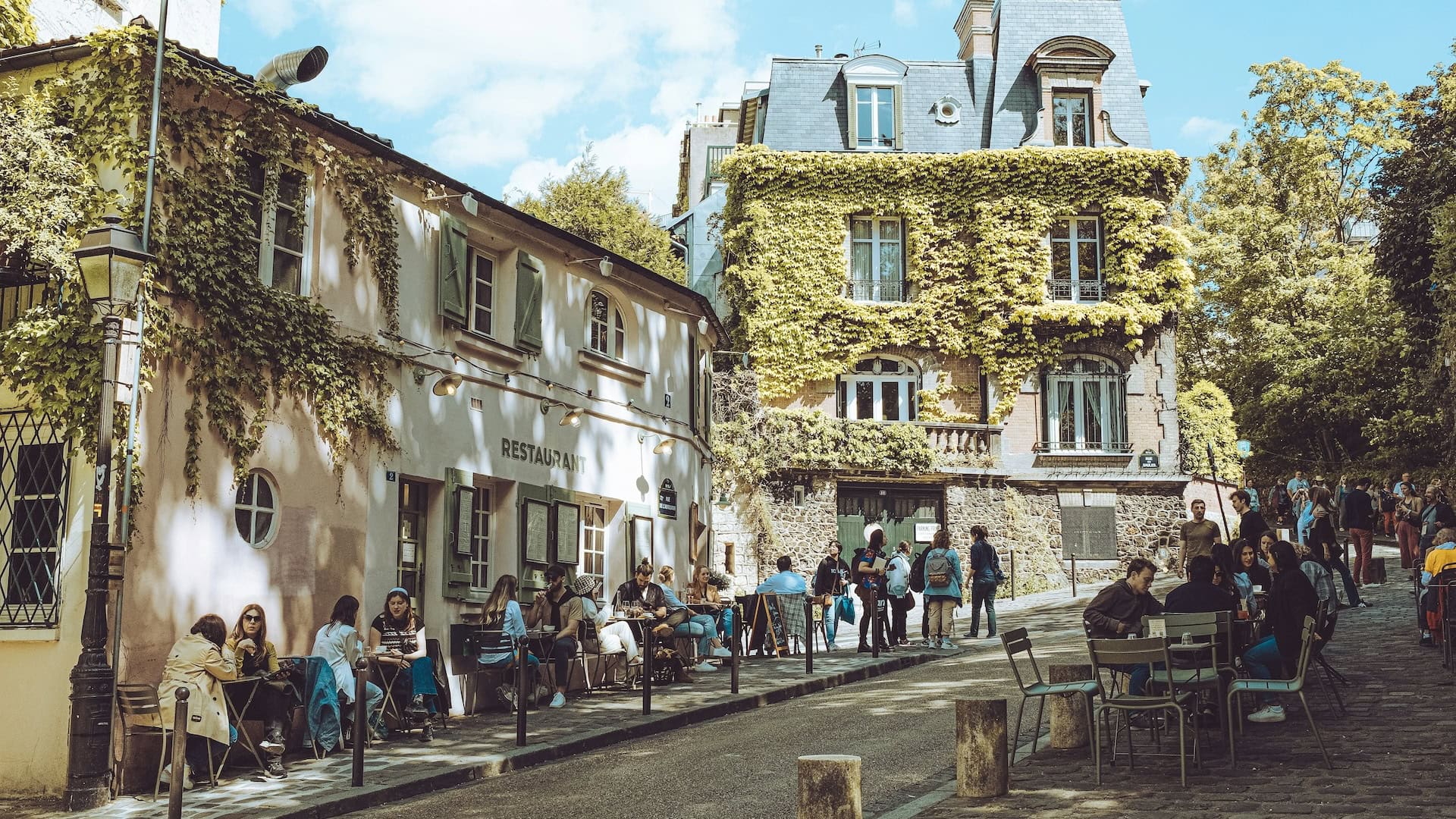
Beyond rent, everyday expenses add up quickly. Grocery prices are comparable to other European capitals, but dining out regularly will push your budget. Utilities (electricity, water, internet) generally total €100-€150 per month for a small apartment. A Navigo transport pass, which covers unlimited travel on the metro, buses and RER, costs €86.40 monthly.
For a comfortable expat lifestyle, budgeting around €2,500-€3,000 per month is a good starting point. This allows room for housing, groceries, dining out occasionally, entertainment and transport. Strategic budgeting, like cooking at home, using Navigo for travel and exploring free or low-cost cultural activities, can make your Paris adventure more affordable and enjoyable.
Public transportation in Paris
Paris has an extensive public transportation system, making it easy to explore the city and commute without a car. The Metro, with its 16 color-coded lines, is the backbone of urban mobility and connects seamlessly with the RER (regional trains), buses and trams. For newcomers, the maze of routes might seem overwhelming at first, but apps like Citymapper or Bonjour RATP simplify navigation. Most Parisians rely on public transport, so embrace the rhythm – it’s part of the city’s charm.
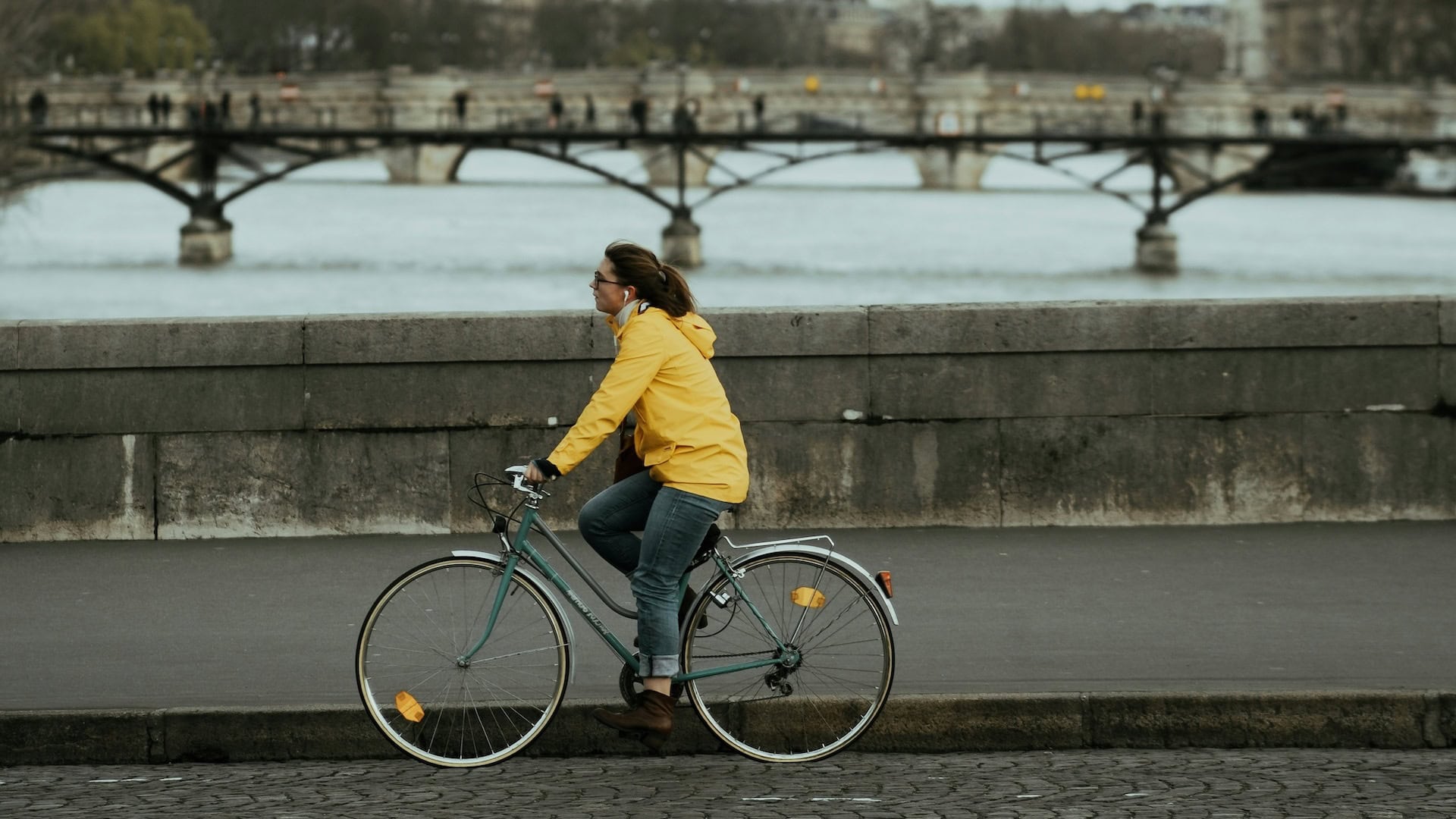
The Navigo pass is a must for regular commuters. Available as a weekly or monthly subscription, the pass grants unlimited travel across all transport modes within selected zones. For most expats living and working within Paris, a monthly pass covering zones 1-2 is sufficient. You can obtain the pass at any major Metro station, just bring a passport-sized photo and a form of ID.
And if you’re a cyclist, you can make use of the Vélib’ bike-sharing system to pedal your way over the 1,000 kilometers of cycling paths in the city.
Learning French and adapting to the culture
Understanding and adapting to local customs is crucial for a successful move to Paris. Learning basic French phrases can go a long way in daily interactions and shows respect for local culture. Additionally, familiarizing yourself with dining etiquette, social norms and the Parisian way of life will help you integrate more smoothly. Duolingo streak challenge, anyone?
Expat life in Paris
Building a new social life in Paris might seem daunting, but the city offers countless ways to connect. From language exchange meetups and hobby clubs to coworking communities and cultural groups, there’s no shortage of avenues to meet like-minded people.
That said, cultural adaptation takes time. Expect a learning curve with the language, bureaucracy and social norms. But with curiosity, patience and a willingness to engage, you’ll find your rhythm – and maybe even start feeling like a local. Remember, every awkward interaction is one step closer to fluency and cultural fluency.
Connecting through community events
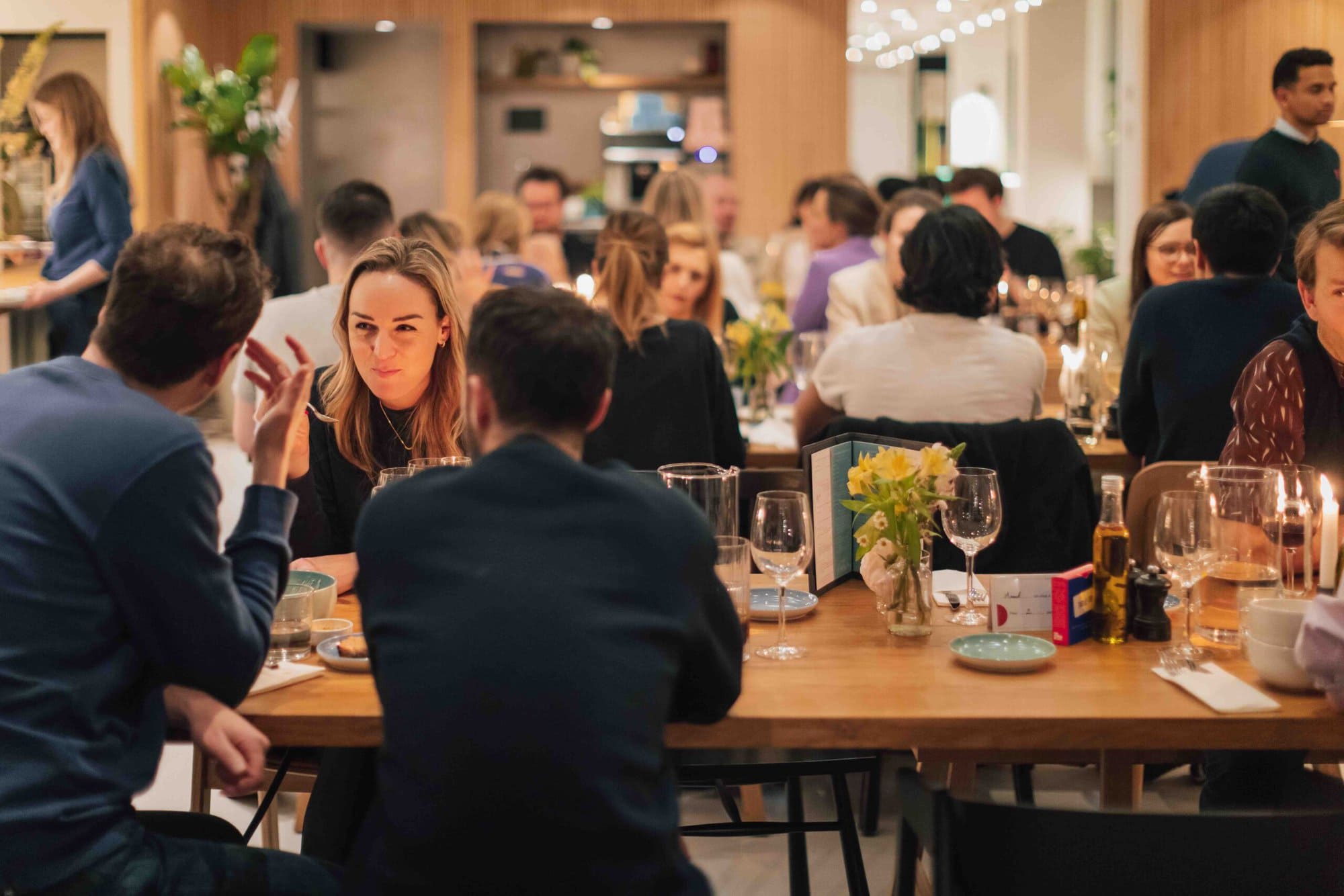
Local cuisine in Paris
Beyond the baguettes and croissants, the city’s food scene is endlessly rich and regional. Start with must-try dishes like boeuf bourguignon, duck confit and the ever-satisfying croque monsieur. For those with a sweet tooth, macarons from Pierre Hermé or éclairs from L’Éclair de Génie are essential indulgences. While Paris is, of course, known for its local cuisine, be sure to try its wide array of international fare. The food standard in France is high, so expect a delicious meal almost anywhere you go.
One of the best ways to experience local flavors is by shopping at neighborhood food markets like Marché d’Aligre or Marché Bastille. These lively hubs offer fresh produce, cheeses, charcuterie and prepared foods – and a taste of everyday Parisian life.
For those looking to dive deeper into the culinary culture, cooking classes (offered in English) can teach you the art of French sauces, pâtisserie or market-to-table cuisine. Whether you’re dining out or cooking at home, food in Paris is more than sustenance – it’s an experience to savor.
Leisure activities in Paris
When work is done, Paris invites you to unwind in style. Nature lovers can escape to Bois de Boulogne or Parc des Buttes-Chaumont for a jog, picnic or moment of calm. Strolling along Canal Saint-Martin, with its leafy promenades and bohemian cafés, is a favorite weekend ritual.
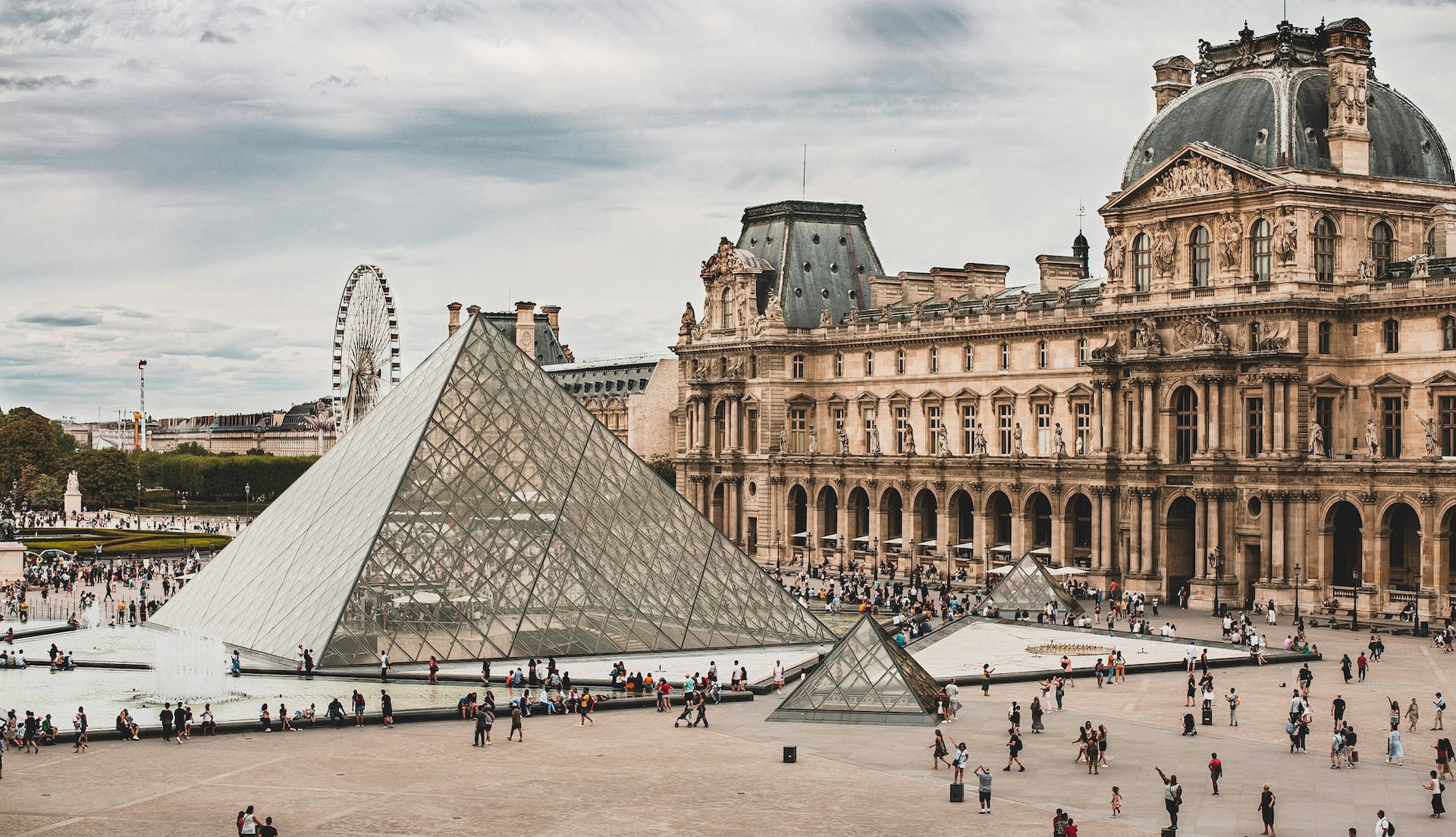
Culturally, the city offers a treasure trove: world-renowned museums like the Louvre and Musée d’Orsay, cutting-edge galleries in the Marais and hidden gems like Musée de la Vie Romantique. Many offer discounted or free entry on the first Sunday of the month, so take advantage.
The entertainment scene is just as diverse. Independent cinemas, jazz bars in Saint-Germain and outdoor concerts at Parc de la Villette keep the city buzzing well into the night. Whether you’re into art, music or just people-watching with a glass of wine, there’s always something to do.
Embrace your new adventure
Relocating to Paris can be an exciting yet challenging experience. By understanding visa requirements, finding suitable accommodation, and adapting to local culture, you can make a smooth transition to life in Paris. So do some prep work, embrace the adventure and get ready to enjoy all that Paris has to offer.
SHARE
Related articles
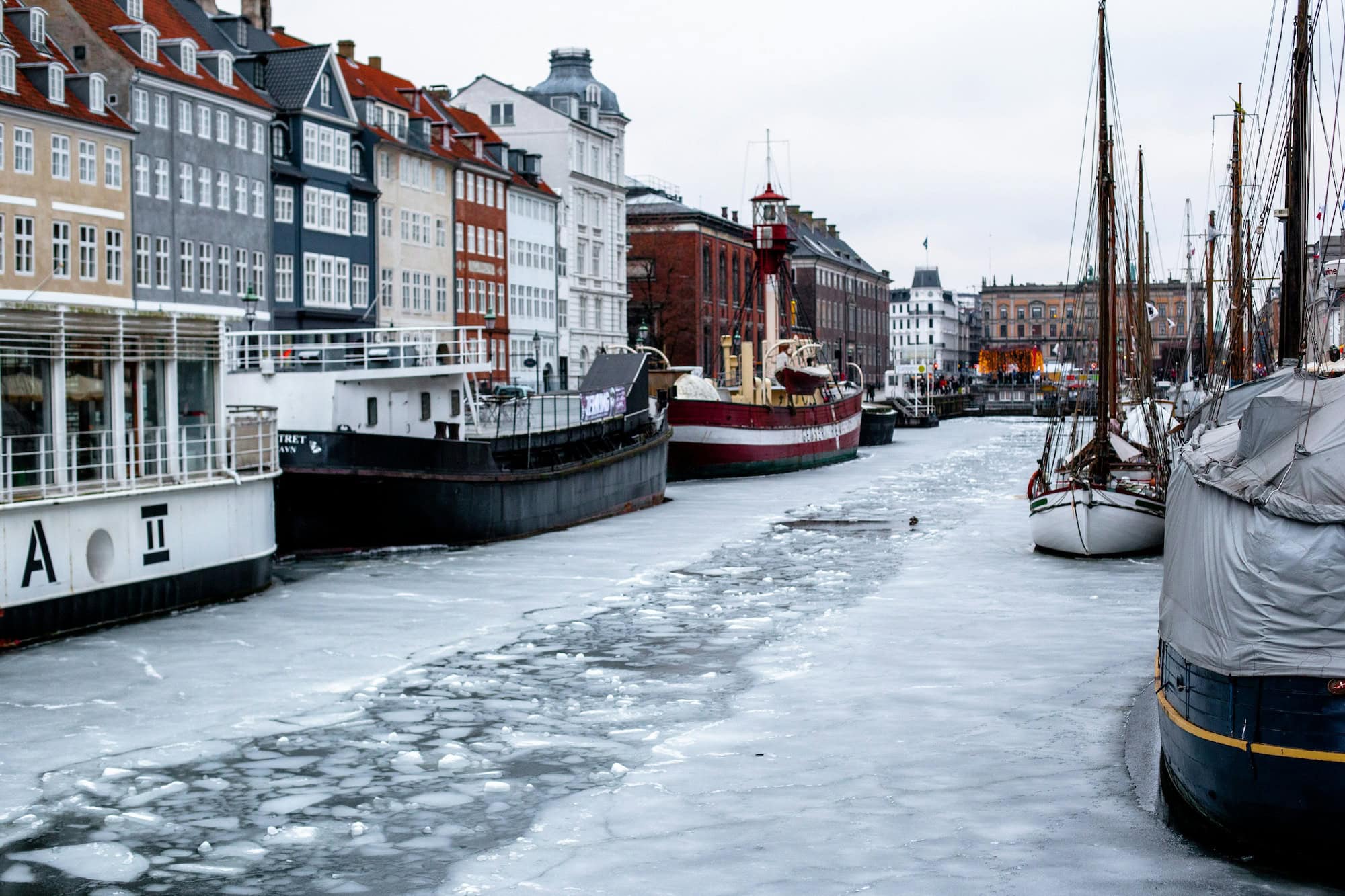
Explore winter in Copenhagen with dazzling light festivals, relaxing saunas and festive events!
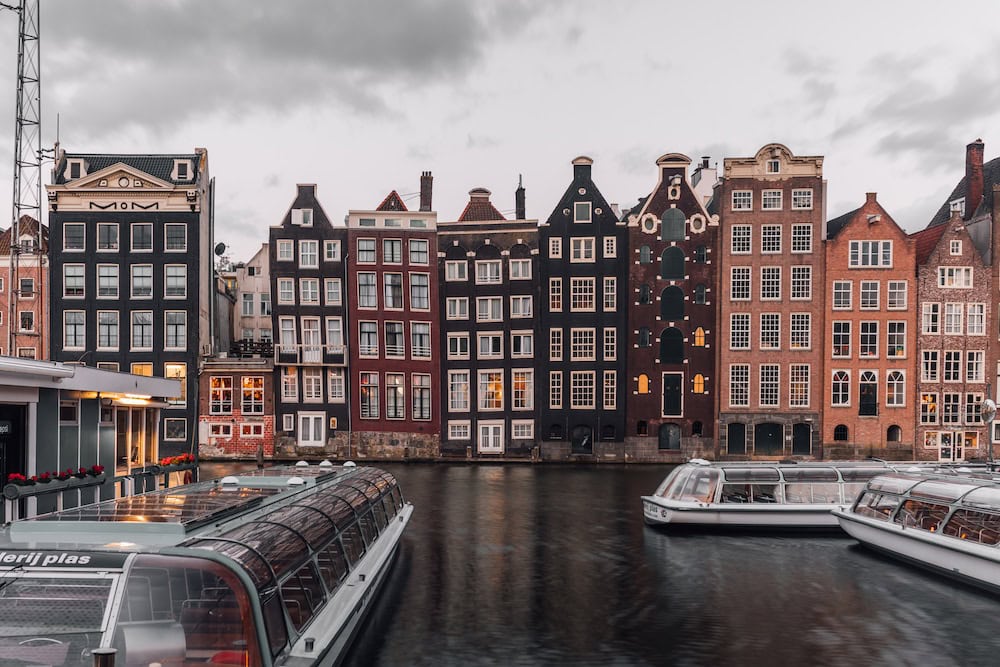
From glowing canals to wellness hubs, embrace the magic of winter in Amsterdam with our guide.
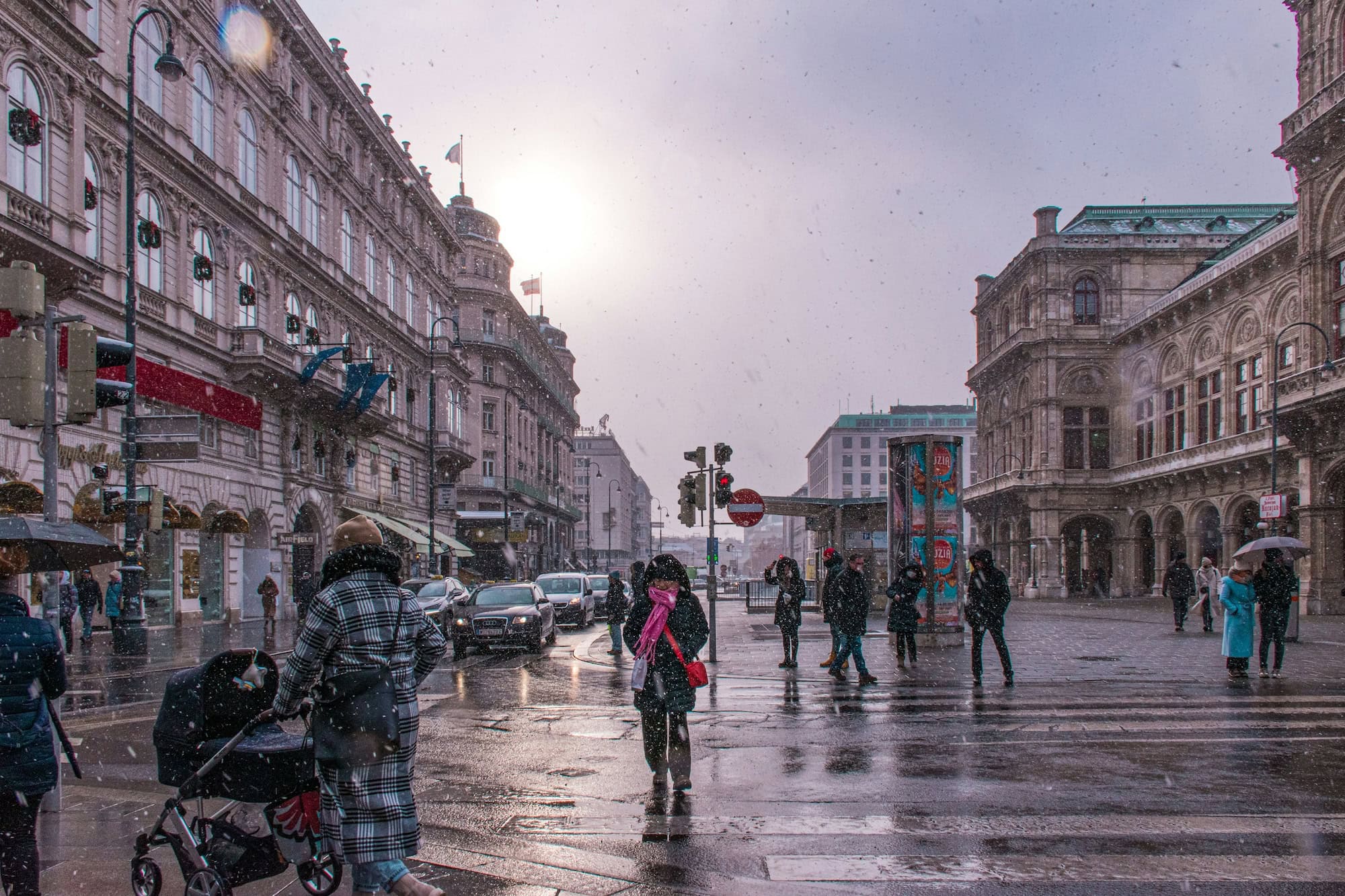
Experience the magic of winter in Vienna with classical music, waltz, wine tastings and more.

Experience the magic of winter in Paris with dazzling ballet, vibrant night markets, and hot chocolate stops.
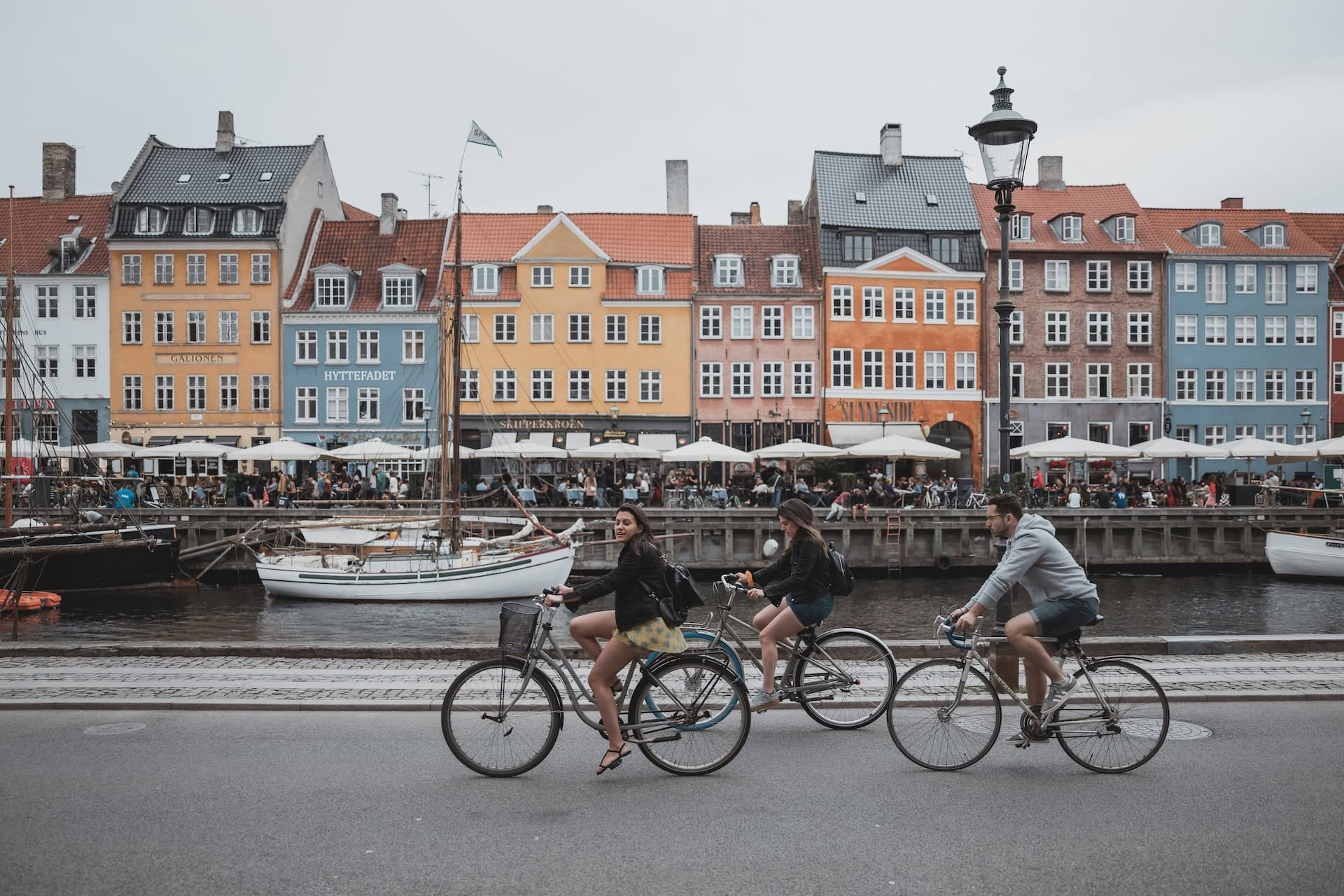
Discover these essential steps before relocating to Copenhagen for a seamless move to the Danish capital.

For this remote worker and world traveler, thoughtful design and quiet workspaces made Zoku the kind of digital nomad hotel that adapts, not interrupts.

Explore the best Christmas markets in Vienna for 2025, from the fairy-tale scene at Schönbrunn Palace to artisan vibes at Spittelberg and the city-classic Christkindlmarkt at Rathausplatz.

